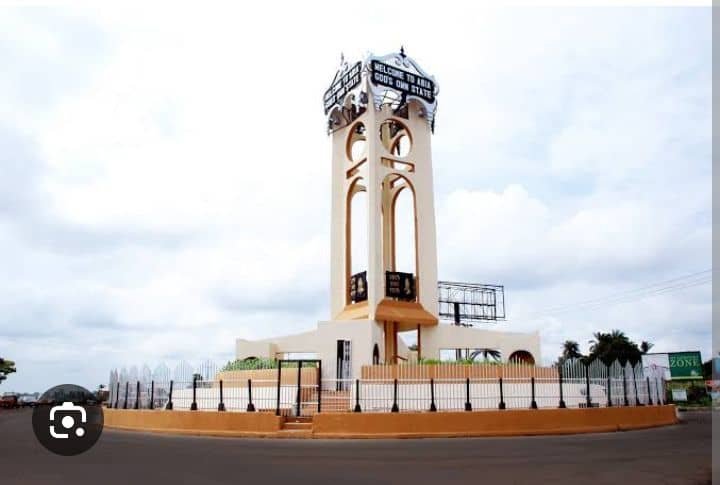Beyond Aba, Ohafia and Umuahia: Unlocking the Untapped Potential of Other Thriving Abia Heartlands

The sociopolitical and economic landscape of Abia State, particularly in regions like Osisioma/Abia South, Ikwuano/Abia Central, and Abiriba/Abia North, has recently seen emerging complexities. These areas, often overlooked in favor of more prominent cities like Aba, Umuahia, and Ohafia, are now gaining attention due to their potential for development and the broader expansionary programs championed by Governor Alex Otti. To understand these dynamics, it is essential to delve into the statistical data provided by reputable sources like the National Bureau of Statistics (NBS), the World Bank, and the International Monetary Fund (IMF).
Economic Indicators and Challenges
- Unemployment and Poverty Rates: According to the NBS, Abia State’s unemployment rate stands at approximately 27%, slightly above the national average of 23%. Poverty rates in the state hover around 30%, with rural areas like Ikwuano and Abiriba experiencing higher levels of economic deprivation compared to urban centers like Aba and Umuahia.
- GDP Contribution: Abia State contributes about 1.2% to Nigeria’s GDP, with much of its economic activity concentrated in Aba, known for its commerce and manufacturing. However, regions like Osisioma and Abiriba remain underdeveloped, contributing minimally to the state’s GDP despite their potential in agriculture and small-scale industries.
- Infrastructure Deficit: The World Bank’s 2023 report highlights that Abia State suffers from significant infrastructure gaps, particularly in rural areas. Only 40% of rural communities in Abia have access to good roads, and electricity coverage is below 50%, hindering economic activities in regions like Ikwuano and Abiriba.
- Agricultural Potential: The IMF’s 2024 economic outlook for Nigeria notes that Abia State has untapped agricultural potential, particularly in cassava, yam, and palm oil production. However, poor access to credit facilities, inadequate storage facilities, and lack of modern farming techniques limit productivity in these areas.
Sociopolitical Dynamics
- Urban-Rural Divide: The sociopolitical focus has traditionally been on the “boring triangle” of Aba, Umuahia, and Ohafia, leaving regions like Osisioma, Ikwuano, and Abiriba marginalized. This has fueled discontent among residents, who feel excluded from state development programs.
- Governor Otti’s Expansionary Vision: Governor Alex Otti’s administration has expressed a desire to extend development initiatives beyond the traditional urban centers. His focus on inclusive growth aims to address the urban-rural divide by investing in infrastructure, education, and healthcare in underserved areas. This shift in focus is expected to unlock the economic potential of regions like Abiriba and Ikwuano.
- Security Concerns: The rise in sociopolitical tensions in these regions is partly due to the activities of non-state actors and communal clashes over resources. The World Bank’s 2023 report on Nigeria’s security challenges highlights Abia State as one of the regions experiencing low-intensity conflicts, which could deter investment and development. Potential for Growth
- Industrialization and SMEs: Aba, known as the “Japan of Africa” for its entrepreneurial spirit, serves as a model for what could be achieved in other parts of Abia State. Governor Otti’s plan to replicate Aba’s success in regions like Osisioma and Abiriba could transform these areas into hubs for small and medium-sized enterprises (SMEs).
- Tourism and Cultural Heritage: Abiriba, known for its rich cultural heritage and traditional craftsmanship, has the potential to become a tourist destination. Investment in tourism infrastructure could create jobs and stimulate economic growth in the region.
- Agricultural Transformation: With the right policies and investments, Ikwuano’s agricultural sector could become a major contributor to the state’s economy. The IMF recommends increased access to credit and the adoption of modern farming techniques to boost productivity.
Governor Otti’s Mind
Governor Alex Otti, OFR, acknowledges the love and opportunity God has placed in his hands. He emphasizes it as a unique opportunity to transform Abia State into a model of inclusive and sustainable development. Drawing from his various private and public discussions as regards the complexities and challenges highlighted in regions like Osisioma/Abia South, Ikwuano/Abia Central, and Abiriba/Abia North, it is heart warming that among other things he wants to:
1. Prioritize more and expansive Infrastructure Development
- Roads and Transportation: Invest in constructing and rehabilitating roads in rural areas like Ikwuano, Osisioma and Abiriba to improve connectivity and facilitate the movement of goods and people. This will boost agricultural productivity and commerce.
- Electricity and Water Supply: Partner with the federal government and private investors to expand electricity coverage and provide clean water to underserved communities. Reliable power supply is critical for industrialization and SME growth.
- Digital Infrastructure: He has concluded plans to expand private sector led broadband internet access to these areas to bridge the digital divide and enable the growth of tech-driven businesses, so as to calm youthful restiveness. 2. Unlock Agricultural Potential
- Mechanization and Training: He’s extensive and intensive partnership with CSS Global Farms Limited is to introduce modern farming techniques and provide farmers with access to machinery, fertilizers, and high-yield seedlings. Establish sustainable training programs to enhance agricultural skills.
- Storage and Processing Facilities: Dr Alex Chioma Otti is scouting for areas to build storage facilities and agro-processing plants to reduce post-harvest losses and add value to agricultural products like cassava, yam, and palm oil.
- Access to Credit: As a former Frontline banker, he’s still engaging with more experts to fine tune ways to aid private sector to collaborate with financial institutions to provide low-interest loans and grants to farmers and agribusinesses.
3. Promote Industrialization and SME Growth
- Industrial Clusters: As I write, the governor has made arrangements with four large agro foreign and domestic firms to establish industrial parks and clusters in Ikwuano, Osisioma and Abiriba as plot projects to attract investments and create jobs. He’s focusing on sectors like manufacturing, textiles, and food processing.
- Support for SMEs: Geolocating Provision grants, training, and mentorship programs for small and medium-sized enterprises (SMEs), particularly in Aba, to replicate its entrepreneurial success in other parts of the state is a current challenge within the government circle, as aides are working round the clock to turbo charge this grassroot revolution.
- Ease of Doing Business: To spread this this revolution around the state beyond the boring triangle – Aba, Umuahia and Ohafia, he has tasked his aides to streamline regulatory processes and reduce bureaucratic bottlenecks to attract both local and foreign investors. 4. Invest in Human Capital Development
- Education: It’s no longer news that Otti is revamping the education system by renovating schools, providing learning materials, and training teachers. Introducing vocational and technical education to equip youths with employable skills.
- Healthcare: This is his flagship or signature program, that is the upgrade of healthcare facilities, especially in all senatorial zones of the state, as he has vowed to ensure the availability of essential drugs and medical personnel. Implement health insurance schemes to make healthcare affordable for all.
- Youth Empowerment: He’s game changing strategy in all these is to create programs to engage youths in productive activities, such as agriculture, tech innovation, and creative industries, to reduce unemployment and restiveness especially in those pilot areas.
5. Harness Tourism and Cultural Heritage
- Tourism Development: I was reliably informed that phase 2 of His Excellency program in tourism infrastructure in areas like Abiriba, known for its cultural heritage and craftsmanship, to s to promote festivals, historical sites, and eco-tourism to attract visitors and generate revenue.
- Branding and Marketing: As a branding consultants are working round the clock to develop a robust marketing strategy to showcase Abia State’s unique cultural and tourism assets to the world.
Conclusion
Governor Alex Otti’s vision for a greater Abia State is achievable with a focus on inclusive development, data-driven policies, and strategic partnerships. By addressing the unique challenges of regions like Osisioma, Ikwuano, and Abiriba, while leveraging the state’s strengths in agriculture, commerce, and culture, his administration can create a legacy of sustainable growth and prosperity for all Abia residents.
Dr Chukwuemeka Ifegwu Eke writes from the University of Abuja/Yakubu Gowon University Nigeria







